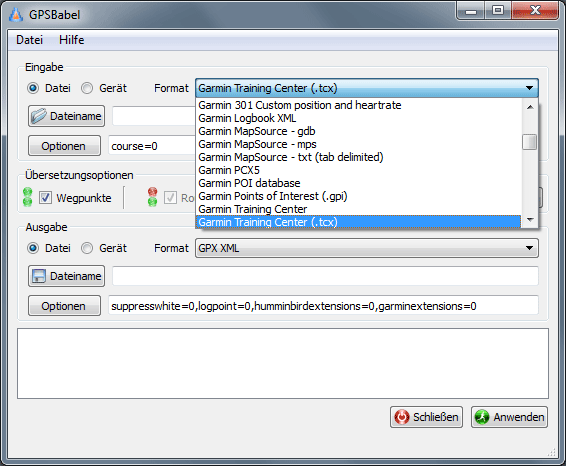

You can find a 3D C++ implementation here: 3D Douglas-Peucker in C++ If you find a Douglas-Peucker algorithm implemented in your language, it might have some 2D vector math implemented, and you'll need to extend those to use 3 dimensions. Logically, it's the same process in 3D as in 2D. This will require some simple vector operations. Then, you scan the points between B and I to find the furthest point from line segment AJ and scan points K through Y to find the point furthest from segment JZ, and so on, until the remaining points all lie within some desired distance threshold. Now scan through all remaining points B through Y to find the point furthest away from the line segment AZ. The simplest version of this path has two points, A and Z, so we start there. Say you have input path consisting of 26 points labeled A to Z. It's easy to extend the algorithm to the 3D case with a little understanding of how the algorithm works. I have done so for a web application of my own using a PHP implementation of Douglas-Peucker. But as you have pointed out, you will need to extend it to the 3D case to properly simplify a GPS track with an inherent time dimension associated with every point. Yes, as mentioned before, the Douglas-Peucker algorithm is a straightforward way to simplify 2D connected paths. Is there some ready-made utility / library / algorithm available to optimize tracks? Or may be I'm missing some clever option with gpsbabel? not checking that the speed was roughly constant). analyzing only geometrical shape of path, without timestamps (i.e. I thought of using gpsbabel for such track simplification / optimization job, but, alas, it's simplification filter works only with routes, i.e. There are myriads of points that can be deleted without losing almost anything: when there are several points making up roughly the straight line and we're moving with the same constant speed between them, we can just leave the first and the last point and throw away anything else. I understand that having several thousands of points of suboptimal. It works, but several thousands of points make using the map a sloppy and slow experience. Afterwards, I try to plot this track on a map and use it with OpenLayers. GPS receiver updates its coordinates every 1 second, gpxlogger's logic is very simple, it writes down location ( lat, lon, ele) and a timestamp ( time) received from GPS every n seconds ( n = 3 in my case).Īfter writing down a several hours worth of track, gpxlogger saves several megabyte long GPX file that includes several thousands of points. Submission.I've got a GPS track produced by gpxlogger(1) (supplied as a client for gpsd). Support, new GPS models, etc.) please mention that in your If you haveĪ way you'd like to see the money spent (i.e. Supporting the project with your time or your donation. Next generation (hey, someone funded what's there now.) by Money to buy GPS receivers, programs, and computers for development. We get a constant stream of requests to support new hardware,Īdding support for new OSes, and such.
#Gpsbabel split track download
It is free to download and use, and it's free to modify for your use, as it's distributed under the GNU Public License.
#Gpsbabel split track windows
GPSBabel runs on Microsoft Windows 10-11, MacOS, Linux, as well as POSIX OSes like FreeBSD. Does it run on my computer?Īlmost certainly. We process data that may (or may not be) placed on a map, such as GPSBabel does not convert, transfer, send, or manipulate maps. It contains extensive data manipulation abilities making it aĬonvenient for server-side processing or as the backend for other

To us the ability to freely move our own waypoint data between the Programs for manipulating GPS data have imposed upon us, GPSBabel returns It has been downloaded and used tens of millions of times since it was first created in 2001, so it's stable and trusted.īy flattening the Tower of Babel that the authors of various

such as filtering duplicates points or simplifying tracks. It also has powerful manipulation tools for such data. Literally hundreds of GPS receivers and programs are supported. GPS receivers such as Garmin or Magellan and mapping programs like Google Earth or Basecamp. GPSBabel converts waypoints, tracks, and routes between popular


 0 kommentar(er)
0 kommentar(er)
